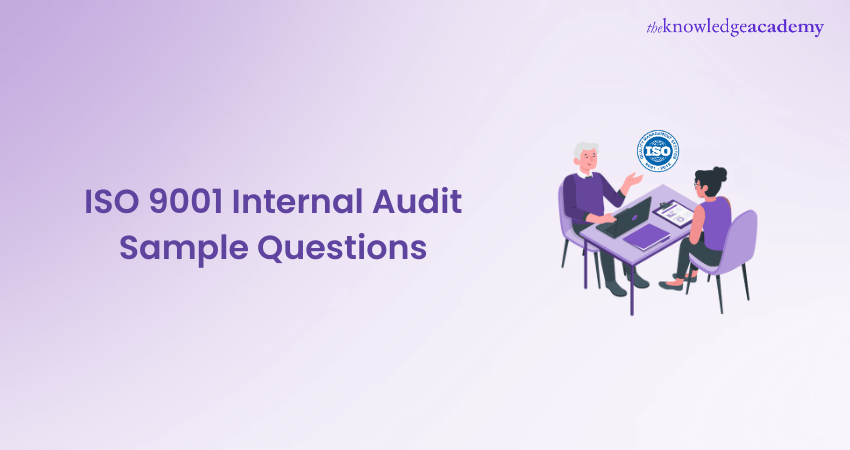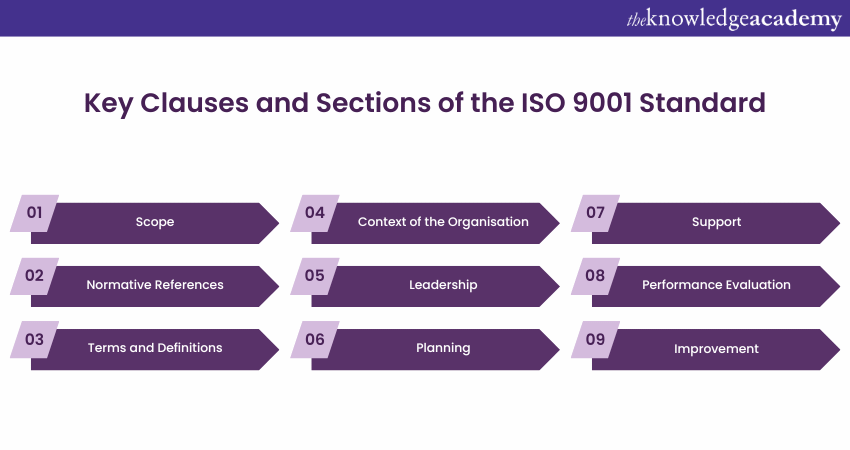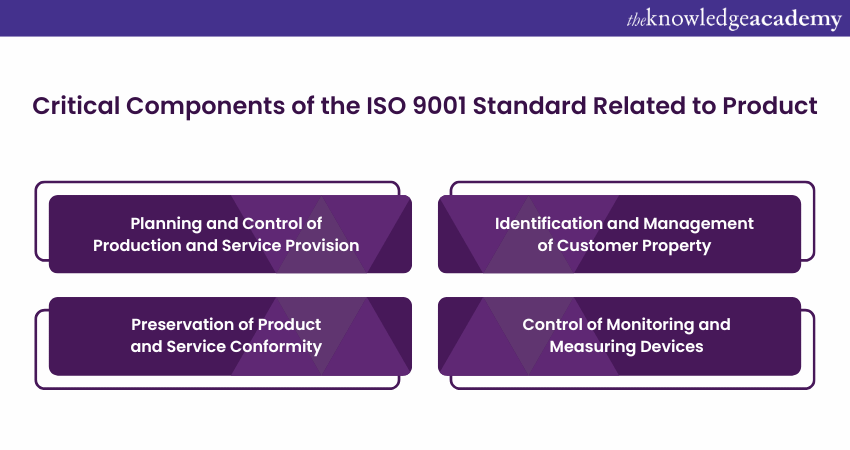We may not have the course you’re looking for. If you enquire or give us a call on +61 272026926 and speak to our training experts, we may still be able to help with your training requirements.
Training Outcomes Within Your Budget!
We ensure quality, budget-alignment, and timely delivery by our expert instructors.

The ISO 9001 Standard is the cornerstone of Quality Management Systems (QMS) worldwide, emphasising the difference between ISO 9000 vs 9001. helping organisations consistently deliver products and services that meet customer expectations. Internal Audits play a vital role in maintaining compliance and driving continuous improvement. As we step into 2024, ISO 9001 Internal Audit Sample Questions will keep you updated with the latest changes and trends in ISO 9001 Internal Audits.
According to ISO, the U.K. stands in the top 5 countries with 39,682 ISO 9001 Certificates in 2022. Further, this blog will comprehensively list updated ISO 9001 Internal Audit Sample Questions. These questions will help Auditors and organisations ensure their Quality Management Systems (QMS) are robust, effective, and aligned with the latest ISO 9001 Requirements.
Table of Contents
1) Questions on Understanding ISO 9001 requirements
2) Risk-based Thinking and Context of the Organisation Questions
3) Questions on Leadership and Commitment in Internal Audit
4) Questions on Planning and Objectives in Internal Audit
5) Questions on Operation and performance evaluation
6) Conclusion
Questions on Understanding ISO 9001 Requirements
Here are some basic questions on ISO 9001:
1) What is the Purpose of ISO 9001, and How Does it Benefit Organisations?
ISO 9001 is a recognised standard for QMS. Its primary purpose remains consistent: Helping organisations achieve consistent quality while adapting to contemporary business dynamics. The benefits have evolved to align with modern demands.
ISO 9001 benefits organisations by enhancing competitiveness and resilience while adhering to ISO 9001 Principles. It promotes customer-centricity, ensuring that products and services meet or exceed customer expectations, which is crucial for fostering loyalty and revenue growth in an era driven by customer satisfaction.
2) How Does ISO 9001 Define the Scope of the QMS?
ISO 9001 defines the content of the QMS by specifying the products, services, and processes it covers specifying the difference between ISO 9001 vs Six Sigma with its focus on statistical analysis and process improvement techniques. A clear scope ensures that quality efforts are focused where they matter most, aligning with customer needs and organisational goals.
The scope statement should consider the organisation's size, complexity, and stakeholder expectations. It must align with strategic objectives, ensuring the QMS contributes directly to business success through expansion, cost reduction, or sustainability.
3) What are the Key Clauses and Sections of the ISO 9001 Standard?
ISO 9001 comprises essential clauses and sections, including:

ISO 9001 comprises essential clauses and sections:
a) Scope: Defines the QMS boundaries
b) Normative references: Lists external ISO Quality Standards referenced
c) Terms and definitions: Provides term definitions
d) Context of the Organisation: Considers internal and external context
e) Leadership: Emphasises leadership's role in QMS
f) Planning: Focuses on risk assessment, objectives, and action plans
g) Support: Addresses resource management and communication
h) Operation: Covers operational planning and control
i) Performance Evaluation: Details monitoring and analysis processes
j) Improvement: Encourages continual QMS enhancement
Risk-based Thinking and Context of the Organisation Questions
Here are some ISO 9001 audit sample questions on risk-based thinking and the context of the organisation
1) How Does ISO 9001 Emphasise the Importance of Risk-based Thinking in Quality Management?
ISO 9001 emphasises the importance of risk-based thinking by requiring organisations to identify and evaluate risks and opportunities that could affect the organisation's ability to meet its quality objectives. This means that organisations need to identify potential problems and take steps to mitigate them proactively. Risk-based thinking is also essential for identifying and taking advantage of opportunities to improve the organisation's performance.
2) What Steps Should an Organisation Take to Identify and Assess Risks and Opportunities in its Context?
The following are some steps that an organisation can take to identify and assess risks and opportunities in its context:
a) Understand the organisation's context, including its internal and external environment.
b) Identify and assess all risks and opportunities that could affect the organisation's ability to meet its quality objectives.
c) Prioritise the risks and opportunities for treatment.
d) Implement appropriate controls to mitigate the risks and take advantage of the opportunities.
3) How can an Internal Auditor Ensure That an Organisation Effectively Implements Risk-based Thinking?
An Internal Auditor can ensure that an organisation effectively implements risk-based thinking by:
a) Reviewing the organisation's Risk Management Process to ensure that it is aligned with the requirements of ISO 9001
b) Evaluating the effectiveness of the organisation's risk controls
c) Making recommendations for improvement to the organisation's Risk Management process
Empower your organisation with ISO 9001 compliance - become a certified Internal Auditor with ISO 9001 Internal Auditor Course!
Questions on Leadership and Commitment in Internal Audit
Here are some questions on leadership and commitment in Internal Audit:
1) What are the Leadership Responsibilities According to ISO 9001?
The leadership responsibilities according to ISO 9001 are:
a) Be a role model for others in the organisation by demonstrating your commitment to quality
b) Ensure that the QMS is aligned with the organisation's strategic direction
c) Promote a culture of continuous improvement
d) Provide resources for the QMS
e) Communicate the importance of the QMS to all employees
f) Promote the involvement of all employees in the QMS
g) Ensure that the QMS is effective and efficient
h) Review the QMS regularly and make improvements as needed
2) How Can an Auditor Evaluate Top Management's Commitment to the QMS?
An Auditor can evaluate top management's commitment to the QMS by:
a) Reviewing the organisation's quality policy and objectives
b) Observing the behaviour of top management
c) Interviewing top management and other employees
d) Reviewing the organisation's ISO 9001 Documentation
3) What Evidence Should be Sought to Determine if Leadership Effectively Supports the QMS?
The following is some evidence that an Auditor should seek to determine if leadership effectively supports the QMS:
a) The organisation has a documented quality policy and objectives that are aligned with the organisation's strategic direction.
b) Top management is actively involved in the QMS
c) Top management provides the necessary resources for the QMS.
d) Top management communicates the importance of the QMS to all employees.
e) Top management promotes the involvement of all employees in the QMS.
f) The organisation has a process for reviewing the QMS regularly and making improvements as needed.
Join now in our ISO 9001 Lead Auditor Training to enhance your auditing skills and advance your professional journey!
Questions on Planning and Objectives in Internal Audit
Here are some questions on planning and objectives in Internal Audit:
1) What Does the ISO 9001 Standard Require Regarding Planning and Setting Quality Objectives?
The ISO 9001 Standard requires organisations to plan their QMS and set quality objectives that are:
a) Specific: The goals should be unambiguous
b) Measurable: The goals should be quantifiable or measurable to track progress
c) Achievable: Given the organisation's resources and capabilities, the objectives should be realistic and achievable
d) Relevant: The purposes should be relevant to the organisation's strategic goals and objectives
e) Time-bound: The purposes should have a specific timeframe for completion
2) How Can an Internal Auditor Assess if the Organisation's Objectives are Based on SMART Goals?
An Internal Auditor can assess if the organisation's objectives are based on SMART goals by:
a) Reviewing the organisation's quality policy and objectives
b) Interviewing the organisation's management and employees
c) Reviewing the organisation's documentation
d) The auditor should seek evidence from the ISO 9001 Audit Checklist
3) What Role Does the Quality Policy Play in the Planning Process?
The quality policy is a statement of the organisation's commitment to quality. It provides the foundation for the planning process by setting out the organisation's overall goals and objectives for quality. The quality policy should be communicated to all employees to guide the planning process.
Questions on Operation and Performance Evaluation
Here are some questions on operation and performance evaluation:
1) What are the Critical Components of the ISO 9001 Standard Related to Product and Service Provision?
The critical components of the ISO 9001 Standard related to product and service provision are:

a) Planning and control of production and service provision
b) Identification and management of customer property
c) Preservation of product and service conformity
d) Control of monitoring and measuring devices
2) How Can an Internal Auditor Assess the Effectiveness of Processes and Controls?
An Internal Auditor can assess the effectiveness of processes and controls by:
a) Reviewing the organisation's documentation
b) Interviewing the organisation's management and employees
c) Observing the organisation's operations
d) Reviewing the organisation's data and records
3) What Performance Indicators Should an Auditor Consider When Evaluating the QMS's Performance?
The performance indicators that an ISO 9001 Auditor should consider when evaluating the QMS's performance include:
a) Customer satisfaction
b) Number of defects
c) Employee training and competence
d) Cost of quality
e) Employee satisfaction
Empower your team with ISO 9001 Training for enhanced Quality Management and organisational excellence. Join today!
Conclusion
Staying informed about the latest ISO 9001 Standards and Internal Audit practices is paramount for organisations committed to Quality Management. These updated ISO 9001 Internal Audit Sample Questions provide a valuable tool for Auditors and businesses to ensure compliance, drive improvement, and meet customer expectations effectively.
Begin your journey towards ISO 9001 excellence by joining our ISO 9001 Foundation Course today!
Frequently Asked Questions

To conduct an internal audit for ISO 9001, first, plan the audit by defining its scope and objectives. Next, prepare audit checklists based on ISO 9001 requirements. Then, perform the audit by reviewing documents, observing processes, and interviewing staff.

Internal Auditors need analytical skills to assess processes and identify risks, attention to detail to ensure accuracy in their reviews, communication skills to effectively report findings, problem-solving abilities to recommend improvements, and knowledge of relevant standards and regulations, such as ISO 9001 to ensure compliance.

The Knowledge Academy takes global learning to new heights, offering over 30,000 online courses across 490+ locations in 220 countries. This expansive reach ensures accessibility and convenience for learners worldwide.
Alongside our diverse Online Course Catalogue, encompassing 17 major categories, we go the extra mile by providing a plethora of free educational Online Resources like News updates, Blogs, videos, webinars, and interview questions. Tailoring learning experiences further, professionals can maximise value with customisable Course Bundles of TKA.

The Knowledge Academy’s Knowledge Pass, a prepaid voucher, adds another layer of flexibility, allowing course bookings over a 12-month period. Join us on a journey where education knows no bounds.

The Knowledge Academy offers various ISO 9001 Certification Courses, including the ISO 9001 Foundation Course, and the ISO 9001 Lead Auditor Course. These courses cater to different skill levels, providing comprehensive insights into Roles and Responsibilities of ISO 9001 Auditor.
Our ISO and Compliance Blogs cover a range of topics related to ISO 9001, offering valuable resources, best practices, and industry insights. Whether you are a beginner or looking to advance your ISO and Compliance knowledge, The Knowledge Academy's diverse courses and informative blogs have got you covered.







 Top Rated Course
Top Rated Course




 If you wish to make any changes to your course, please
If you wish to make any changes to your course, please


